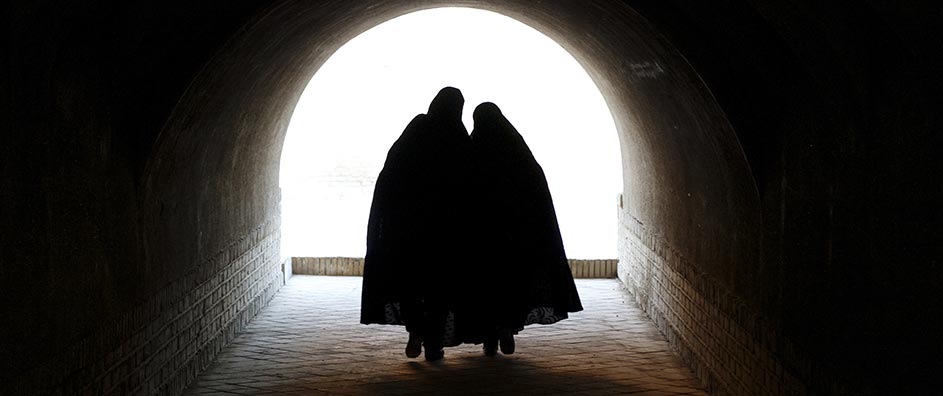The Baha’i Faith is a relatively nascent religion that emerged in the mid-19th century, advocating for the unity of all peoples and religions, the elimination of prejudice, and the pursuit of social justice. In Iran, where the faith was born, adherence often entails profound challenges, including persecution and societal ostracism. The paradox of identifying as a Baha’i in Iran lies in the act of embracing a profound spiritual belief while simultaneously navigating a landscape fraught with restrictions and dangers. This exploration seeks to elucidate both the tenets of Baha’i teachings and the experiences of individuals who embody these principles in a milieu marked by intolerance.
At the core of Baha’i doctrine is the belief in the oneness of humanity. This fundamental tenet posits that all human beings are created equal and deserving of dignity, irrespective of cultural background or religious affiliation. As adherents of this faith confront the harsh realities of life in Iran, their commitment to this principle becomes a poignant testament to resilience. The Baha’i community emphasizes advocacy for the marginalized and disenfranchised, aiming to transcend the limitations of sectarian discord and encourage dialogue among diverse cultures and beliefs.
One crucial aspect of Baha’i teachings revolves around the importance of education. Baha’is hold that knowledge equips individuals to contribute constructively to society. In a country where Baha’i children are frequently denied access to education, the commitment to learning becomes an act of defiance. Pursuing knowledge under oppressive circumstances illustrates both the valor and the imperative of intellectual freedom entrenched in Baha’i philosophy. The elucidation of truth, therefore, becomes not only a personal goal but also a communal aspiration that seeks to illuminate the value of diversity.
Moreover, the concept of service is intrinsic to the Baha’i way of life. The act of serving others is perceived as a form of worship, highlighting the interconnectedness of humanity. Many Iranian Baha’is engage in philanthropic efforts, whether through educational outreach, health initiatives, or social development programs, thus investing in the betterment of their communities. Such efforts become even more significant when surrounded by adversity, reinforcing the strength of communal bonds as a source of sustenance and hope.
The experience of being a Baha’i in Iran is characterized by a palpable tension between faith and repression. Governments have historically viewed the Baha’i community as a threat, leading to widespread discrimination, including arbitrary arrests, forced displacement, and severe restrictions on economic livelihoods. Yet, despite these challenges, many Baha’is persevere in not only expressing their beliefs but also engaging in meaningful actions that reflect their commitment to Baha’i teachings. The courage to declare one’s faith publicly, in the face of persecution, confers a profound sense of purpose and belonging.
Engagement with the global Baha’i community can augment the strength of individuals in Iran, fostering a sense of solidarity that transcends borders. Expatriate Baha’is often serve as conduits of support, providing essential resources and platforms for advocacy. This connectivity provides a dual benefit: individuals in Iran receive support, while the global community becomes acutely aware of the injustices faced by their brethren, culminating in concerted efforts directed towards alleviating such suffering.
Contemplating the nature of spirituality within this context yields profound insights. The notion of spirituality, within Baha’i teachings, transcends the mere act of worship. It permeates every facet of life, informing ethical behavior, charitable actions, and interpersonal relationships. The resilience of Baha’is in Iran serves as a powerful reminder of the transformative potential of spirituality in the face of adversity. By prioritizing virtues such as patience, humility, and perseverance, Baha’is endeavor not merely to endure their circumstances but to transform them into opportunities for inner growth and collective advancement.
Another salient theme in the Baha’i teachings is the imperative of advocacy for human rights. The Baha’i principle of justice necessitates activism that seeks to dismantle systems of oppression and promote equality. Many Iranian Baha’is champion the cause of civic rights, often at great personal risk. Their actions illuminate the complex interplay of faith, ethics, and social responsibility. By promoting universal human rights, Baha’is in Iran challenge prevailing narratives and invite critical reassessment of long-standing societal norms.
The significance of the Baha’i teachings in Iran extends beyond personal faith; it touches upon broader social dynamics that invite contemplation and introspection. The juxtaposition of spiritual devotion and societal repression compels one to reflect on the broader human condition and the universality of spiritual quests. The pursuit of truth and justice, as illuminated through Baha’i teachings, resonates far beyond national borders, reconfiguring how communities can navigate their unique landscapes while fostering a collective spirit rooted in understanding and compassion.
In conclusion, being a Baha’i in Iran is an intricate tapestry woven with threads of faith, resilience, and social engagement. While the challenges faced by Baha’is may appear daunting, the teachings of the Baha’i Faith illuminate pathways towards hope, understanding, and systemic change. They inspire an unwavering commitment to a future harmonious with principles of equality and justice. In sharing these experiences and aspirations, the Baha’i community not only seeks to illuminate their struggles but also invites society at large to embrace a corrective perspective rooted in the values of unity, service, and compassion.
